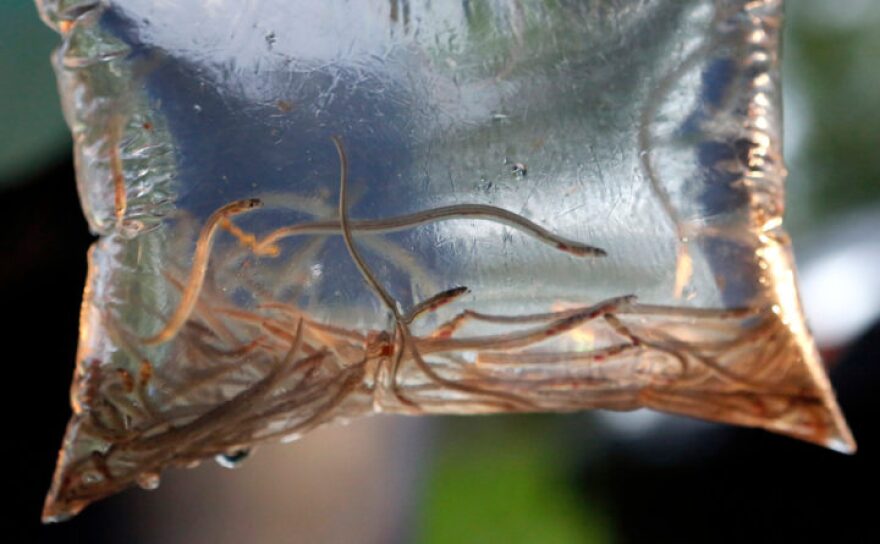The interstate baby eel poaching sting known as Operation Broken Glass has notched three more criminal sentences.
On Thursday, a federal judge in Portland sentenced three men who were together accused of poaching and selling as much as $1 million worth of baby eels, known as elvers, to a mix of probation, restitution and fines.
The sentences are part of the U.S. Fish and Wildlife Services bust of an eel poaching ring that has resulted in 21 men being prosecuted by federal officials in Maine, New Jersey, South Carolina and Virginia on charges of illegally catching, selling and transporting more than $5.25 million worth of elvers in nine East Coast states from 2011 through 2014. Twelve of the defendants are Maine residents, and nine of those live in Sagadahoc County.
Thursday’s largest monetary sentence was handed down to George Anestis, of Boxborough, Massachusetts, who pleaded guilty to violating the Lacey Act, which prohibits interstate transport or transactions of any species of fish or wildlife illegally harvested or handled in any state. He was accused of illegally trafficking more than $480,000 worth of elvers poached in his home state and Rhode Island during 2013 and 2014.
U.S. District Judge Jon Levy sentenced Anestis to serve two years of probation and pay a $5,000 fine and $33,800 in restitution. He has cooperated with federal prosecutors and already turned over the restitution payment, Levy said.
”Truly I’m sorry,” Anestis, who waived his right to appeal, told the court.
In recent years, the price of elvers has soared along with demand from Asia, as wild eel populations in Japan and Europe have declined. Maine and South Carolina are the only U.S. states where the baby eels can be caught legally, and the southern fishery is much smaller.
Also sentenced Thursday were Mark Green, of West Bath, and Charles Good, of Kingston, Massachusetts.
Green was accused of trafficking more than $318,000 worth of elvers poached in Connecticut, Massachusetts and New Jersey in 2013 and 2014. He reached a plea agreement with prosecutors last summer and on Thursday received a sentence of one year probation and a $10,000 restitution payment, according to a prosecutor.
Prosecutors said Good trafficked elvers in 2012 and 2014, catching, buying and selling approximately 130 pounds of baby eels — valued at more than $184,000 — in Massachusetts and Virginia. He also pleaded guilty in October and was sentenced to serve three years probation and pay a $7,000 fine, according to a prosecutor.
Still to come in the fallout from Operation Broken Glass, which refers to the “glass” nickname of the thin translucent eels, is the sentencing of the so-called “elver kingpin.”
William Sheldon was given that moniker in a 2013 BuzzFeed article that reported he bought and sold $12 million worth of elvers in 2012 and described the Woolwich resident’s fondness for fur coats.
Sheldon, a longtime commercial elver dealer operating as Kennebec Glass Eels, was charged with a Lacey Act violation in March 2017. He allegedly bought and sold 281 pounds of poached elvers, worth about $545,000.
In his 70s, Sheldon initially pleaded not guilty, but struck a plea deal with prosecutors in October in which he waived his right to appeal any sentence that includes a prison term of 30 months or fewer. He could face a maximum fine of $250,000.
Sheldon and two other men implicated in Operation Broken Glass are scheduled to be sentenced in Portland on May 3.
This story appears through a partnership with the Bangor Daily News.



